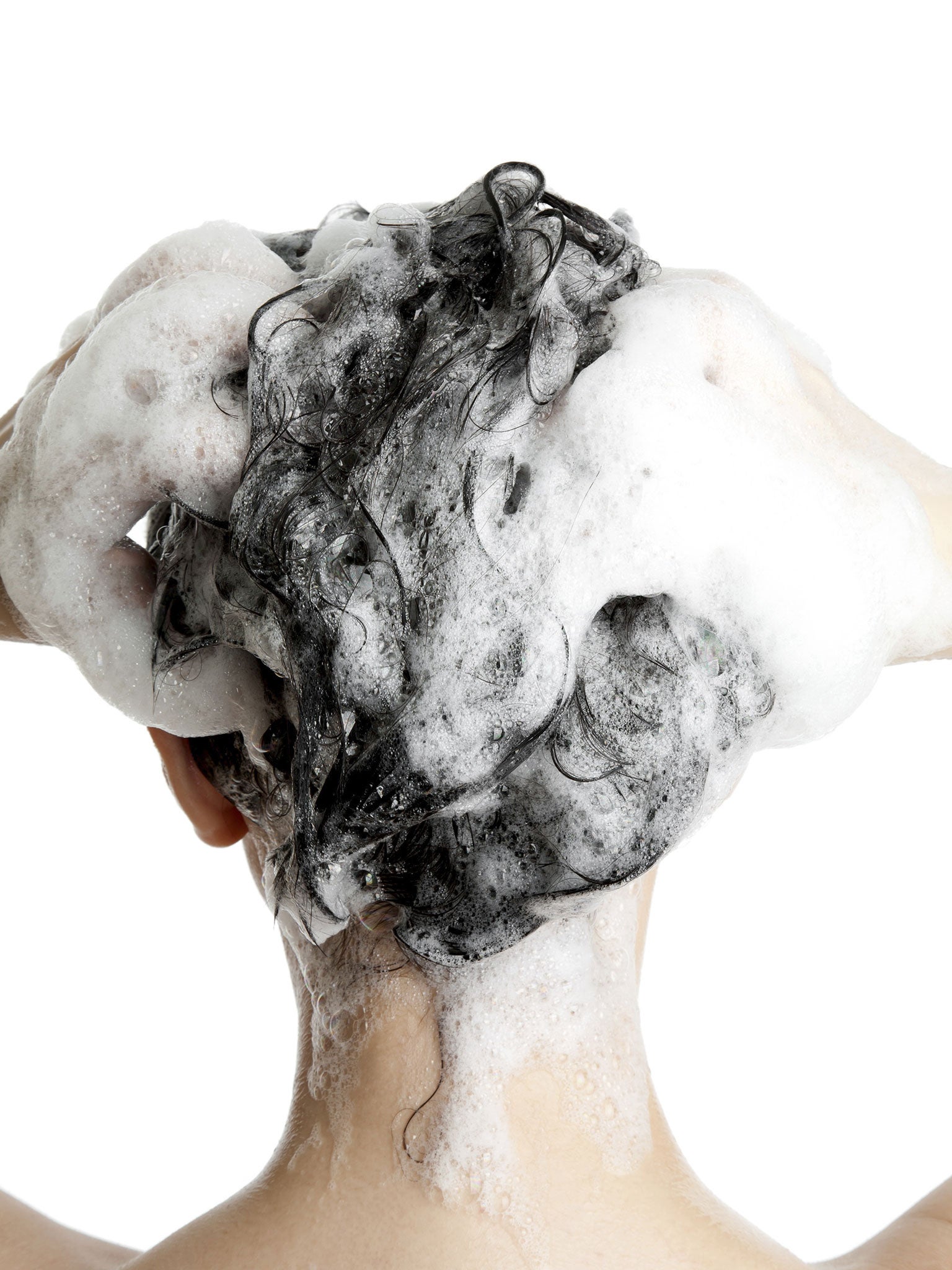Say yes to 'no-poo': It's been three years since I stopped washing my hair
When Susan stopped using shampoo, some were appalled and called her filthy. Three years on, her ‘no-poo’ regime has left her tresses fresh, and her bank balance healthier, as she stopped paying into an industry that's worth £22.6bn

Your support helps us to tell the story
From reproductive rights to climate change to Big Tech, The Independent is on the ground when the story is developing. Whether it's investigating the financials of Elon Musk's pro-Trump PAC or producing our latest documentary, 'The A Word', which shines a light on the American women fighting for reproductive rights, we know how important it is to parse out the facts from the messaging.
At such a critical moment in US history, we need reporters on the ground. Your donation allows us to keep sending journalists to speak to both sides of the story.
The Independent is trusted by Americans across the entire political spectrum. And unlike many other quality news outlets, we choose not to lock Americans out of our reporting and analysis with paywalls. We believe quality journalism should be available to everyone, paid for by those who can afford it.
Your support makes all the difference.I haven’t shampooed my hair since 2011. It isn’t greasy. It doesn’t smell. It has more body than it used to and I’m really happy with the way it looks. Moreover, I’ve saved a stack of money on shampoo and appointments at the hairdressers.
Instead, I rinse it quickly with water and rub it briefly with my fingers to get rid of sweat, dust and flaky bits. It takes all of two minutes. I then towel it, comb it into shape and leave it to dry naturally. Between rinses I brush it thoroughly with a soft-ish hairbrush which helps to distribute the natural oils and keeps it nicely conditioned.
Since I went public on this lifestyle change in an online article for The Independent, I have been castigated for being an old woman with filthy habits but also praised for my “courage” or thanked for inspiring one commenter to throw away their shampoo bottles and give detergent-free hair a go.
The thinking behind shunning shampoo is this. The human scalp secretes sebum, a natural oil which keeps it healthy. If you aggressively wash this off regularly with shampoo, the glands seem to go into a frenzy and produce more. That leads to the dreaded greasy look to which the normal response it to reach for the shampoo bottle and wash it straight off, in many cases, every day. And because freshly washed hair is very soft and unmanageable, conditioner, mousse, wax or gel are needed, all of which attract dust which soon has to be shampooed off. It’s a vicious circle. And because so many people are trapped in it, the manufacturers make masses of money – it’s estimated that the global hair-products industry is worth $38bn (£22.6bn) – and growing at a rate of up to 7 per cent a year.
My experience is that, with determination you can, if you want to, break out of the circle. And I’m not alone in this – there’s a strong “no-poo” movement both here and in the US of people rejoicing in the lack of chemicals they’re putting in and on to their bodies.

If you’ve shampooed your hair all your life, then, obviously, it will be greasy again soon after you’ve washed it. The trick is to brush like mad and hang on to your resolve. It took about a week for my (short) hair to settle down, regulate itself and stop looking greasy. It would probably take a little longer for long hair. After that, you can just stick to water and your hair will stay fresh looking.
The trouble with hair washing is that there are very few qualified, disinterested opinions about it. Most doctors know that it really doesn’t matter much whether you shampoo your hair or not. The experts who will – and do – say what they think are nearly all involved with the hair-product industry which they have an interest in sustaining. Thus you get this sort of thing from a maker of “natural” hair products: “Not shampooing hair every day creates a mass storage of pathogens – disease-causing bacteria – extremely dirty and unhealthy.”
Modern shampoos weren’t developed until the 1920s and daily shampooing has only been widespread since the 1970s and 1980s. In the foreword to her book Clean: An Unsanitised History of Washing, Katherine Ashenburgh writes about her mother who moved from Germany to America in 1925 at the age of six, and how she: “Watched... as her adopted country ratcheted up the cleanliness standards in the 1930s and 1940s. She remembered [the moment] when she first realised that something called shampoo worked better than the boiled-down soap that her mother produced for washing hair.”
Shampoo is, I contend, an option, like perfume. (Indeed, Ashenburgh’s mother “never wore perfume because, as she liked to say, ‘That’s what Europeans use instead of soap’.”) Nobody needs it, but if people want to spend a lot of money on hair products then that is their personal choice. But as for saying that hair is dirty because some people choose not to use shampoo, it’s time to wash that idea right out of our hair.
Join our commenting forum
Join thought-provoking conversations, follow other Independent readers and see their replies
Comments